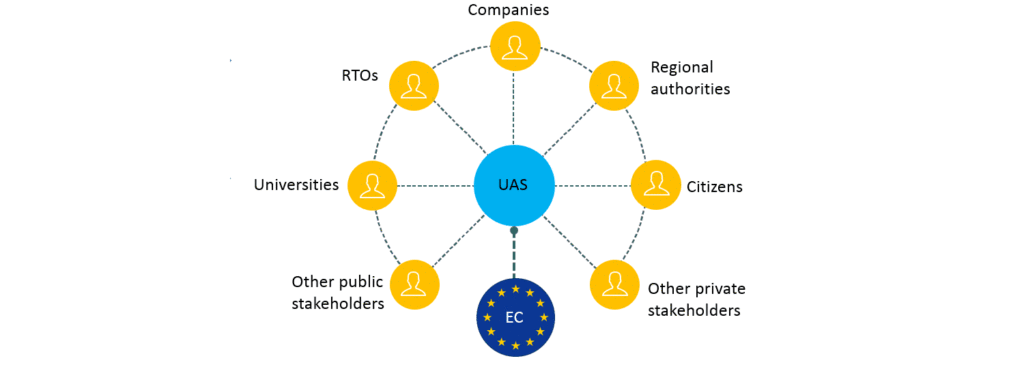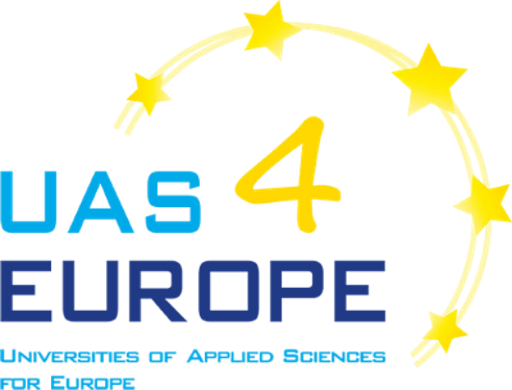Many European countries have a professional higher education system with UAS institutions that focus on education and applied sciences and innovation. Their regional role differs from country to country. Many institutions play an important role in the development of much needed regional human capital. They are significant actors in their regions and have strong networks with regional businesses, civil society and authorities. The UAS with strong reputations with regard to innovation can spin off start-ups in the region and boost the business climate.
The applied RDI agenda of UAS is not only determined by the world of work with the aim of meeting the needs of society and of the world of work. It also reflects the nature of the inputs of stakeholders. The research activities include various types of projects, multidisciplinary topics and research done in cooperation with and involving stakeholders. UAS by no means only focus on technology and industry, but also engage with societal actors to promote social innovation. The multidisciplinary nature of their work is part of their ‘genetic make-up’.

Due to the regional embedding and strong participation of applied research in regional development and policy processes, it is possible for UAS to act as driver of changes in society and regional development. Entrepreneurs, researchers, public authorities, lecturers and students are working together throughout Europe to improve the quality of professional education. They share a mindset in which cooperation between the public and private sectors is essential to meeting the demands of the present and future economy and labour market. They do so by conducting applied research together. They work together through smart partnerships for impact.
One example of these are the Centres of Expertise. Although not all the innovation partnerships of UAS go under the name of Centre, they do have in common that they bring UAS and SMEs, the private industry and non-profit organisations together to work on finding solutions to social issues. They do so along three lines:
- Applied Research aimed at focussing contributions on the innovation potential of companies;
- Initial Education to improve the quality of education and to increase the influx into initial education; and
- Lifelong Learning to increase the mobility and flexibility of existing staff.
In addition, the specific approach of professional higher education to RDI, and the involvement of students in it, contributes to improving the work skills, employability and learn-to-learn capacity of graduates. In regard to these areas of focus, the approach to applied RDI can be considered to be one of the major factors in the social and economic development of SMEs, companies and society.
